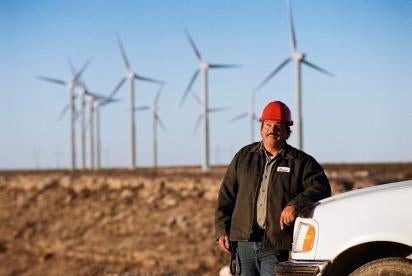In the long-running dispute between the Town of Falmouth and the neighbors to the Town’s wind turbine that powers the municipal wastewater treatment facility (WWTF), score one for the neighbors. The Massachusetts Appeals Court reversed the decision of Barnstable Superior Court Justice Robert C. Rufo in Drummey v. Town of Falmouth, 87 Mass. App. Ct. 127 (2015), finding that the Town was required to obtain a special permit from the Falmouth Zoning Board of Appeals to install the wind turbine on Town land.
Claiming harm from sound pressures and noise from the turbine’s operations, the plaintiffs first sought the building commissioner’s enforcement of the Zoning Bylaw. They alleged that the town violated the Bylaw by failing to secure a special permit for the turbine’s construction and maintenance. The building commissioner denied their request. The plaintiffs appealed to the ZBA and the Superior Court, both of which affirmed the building commissioner’s ruling.
Notwithstanding that the Bylaw provides that a petitioner may apply for a special permit to construct a windmill, the Superior Court found that this provision did not “apply in the limited circumstance where the Town itself desires to construct and operate a windmill for municipal purposes in a district where all such purposes are permitted as of right.” The Court explained that the turbine was a “municipal purpose” that fell within the enumerated community service uses permitted as of right in the Bylaw, which includes: “All municipal purposes, including the administration of government, parks, playgrounds, recreation buildings, Town forests, watershed, water towers and reservoirs, beaches, fire and police stations and armories.” Although turbines were not expressly included in the list of municipal purposes, the Superior Court found the list to be illustrative and not exclusive.
On appeal, the Appeals Court first recited the rule of law that the interpretation of a town's bylaw raises a question of law. As such, the Court “reviews the judge's… interpretations of zoning bylaws, de novo [anew or afresh].” It remarked that, as in other districts of the Bylaw, windmills were specifically designated in the public use district as an accessory use by special permit. Therefore, it logically followed that windmills could not have been intended to fall within the list of more general municipal uses allowed as of right. While the Superior Court’s understanding of the non-exclusive nature of the list was accurate, the Appeals Court found that that characterization of the list “did not adequately consider the weight that must be given a specific by-law provision that has been drafted to take into account the public welfare.” Specifically, the Bylaw included “a comprehensive scheme” for wind turbines including controls on their placement and impact on the town. In effect, the lower court erroneously reviewed the key Bylaw provision in isolation, not in context as the law requires.
The Court vacated the judgments of the Superior Court and remanded the case to the Superior Court for entry of new judgments consistent with its opinion. The Town has filed an application for further appellate review, which is pending before the Supreme Judicial Court.



 i
i


